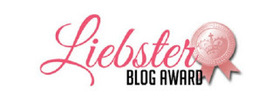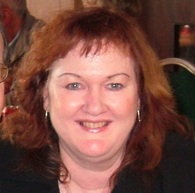
How do you define a good question? Despite a fair amount of experience of interviewing – as an element of both selection and therapy – in my other life, I find myself having to rethink the matter all over again for my blogging persona, Annecdotist.
From the perspective of a candidate in a job interview, a good question might be the one for which you’ve already prepared a good answer, one that enables you to showcase your skills and talents to good effect. But an interviewer who is genuinely curious is unlikely to be satisfied with a “here’s one I prepared earlier” response. Yes, we shouldn’t be looking to trip up the interviewee, but the interaction will feel more authentic if we are able to create something new in the space between us. So a good question can also be one that takes us by surprise.
One of the things I like about Norah’s questions is how well they reflect (what I know of her and) her interests, her passion for learning most of all. This also made them quite difficult to answer: although obsessed with my own thoughts, none of these are the questions that I routinely ask of myself. So I needed to give myself time to consider my responses, to do justice to the spirit in which the questions were asked. Hence the interval between receiving the award and posting my answers. So here are Norah’s questions along with my responses in italics. I’d love to know what you think.
 Norah poses good questions
Norah poses good questions 2. What activities do you enjoy and why? Reading and writing; walking in the countryside; choral singing and growing (some of) my own food. Why? I might say something pompous about health and well-being in body and spirit, but really these just happen to be things I enjoy.
3. What is something you wish you had more time for? I’d like to learn more science and history. I’d like to be fluent in half a dozen languages. I’d like to be able to read every book or blog that catches my attention. I’d like to be better at keeping up with friends. Despite this, I don’t think we can do everything (that’s what fiction is for – the chance to live other lives) and I’m reasonably happy with how I portion out my time.
4. What is one change you would like to make in the world? I’d like to see a shift in emphasis from a culture of greed to one of equality and compassion. I think we could do this by taking care of each other as appropriate at each stage of the life span: all babies to have properly attentive and tuned-in parents so they have a chance of growing up secure; free healthy meals for all kids in school; all adults – including mothers – to have the opportunity for meaningful employment, regardless of their abilities/disabilities; the option of assisted suicide when life has become a liability.
5. What is something you would like to change about yourself? I’d like to be more laid-back, but I’m wired to be uptight and fearful – but generally, I’m fairly adapted to the way I’m evolving and am not looking for a radical change of direction. Unless it’s becoming a published novelist.
6. What surprises you most about your life – something good in your life that you hadn’t expected, dreamed of or thought possible? It has to be taking part in choral concerts of major classical works along with some pretty decent singers and a full orchestra. It’s a real emotional hit, especially for someone who can’t pitch, read music or keep to a rhythm. (Well, maybe I’m progressing towards these things.) Achieving this is partly down to overcoming my fear enough to give myself the opportunity; partly because of a charismatic choir leader who genuinely believes in music for everyone who has created an extremely supportive culture in which we can all express and develop our skills, however limited.
7. What ‘big’ question do you often ponder? The fact that our species has invested so much energy and creativity in the technology of warfare and so little in strategies for living in peace with our neighbours. (And right now, each of these questions posed by Norah seem rather large.)
8. What sorts of things amuse you? It’s taken a long time to get here, but I now appreciate my husband’s dreadful punning jokes. And I quite like dark humour exemplified by the ditty Always Look on the Bright Side of Life from The Life of Brian. (I wonder when we’ll get to sing this in the choir?)
9. What do you like to collect? Slugs from the garden, but I think they get reincarnated when my back’s turned.
10. If you could talk with anyone and ask them to explain their ideas and/or actions, who would it be, and why? I’d ask the women who doled out white feathers to men out of uniform in the First World War why they thought they had the right. If I couldn’t time travel, I’d ask our Prime Minister, David Cameron, why he isn’t ashamed that a rich country like ours has spawned so many food banks. And I’d keep badgering them till they gave me a sensible answer.
11. What is something you can’t do without? My glasses: without them, everything more than an arm’s-length away is a terrible blur. For my writing, voice-activated software, since my arms don’t work so well whether I can see them or not.
12. What is something important you learned about life, and how did you learn it? That, unlike a work of fiction, we can’t scrub out the bits that don’t work and start again. Although I say I’ve learnt this lesson, I keep forgetting and having to learn it all over again.
13. What is your earliest memory? I distinctly remember standing on the steps leading up to the front door of our house, replying “two in August” to a passerby who’d asked my age. However, this being one of the stories my mother liked to tell about me, and knowing what I do about the fallibility of autobiographical memories, especially those from early childhood, I doubt its authenticity, and regard it as my mother’s memory, not mine.
How’s that for my 100th blog post? I’ll be announcing my website nominees and the questions I’d like them to answer quite soon. In the meantime, what do you consider a good question? And how would you respond to any of the above?





















 RSS Feed
RSS Feed





















